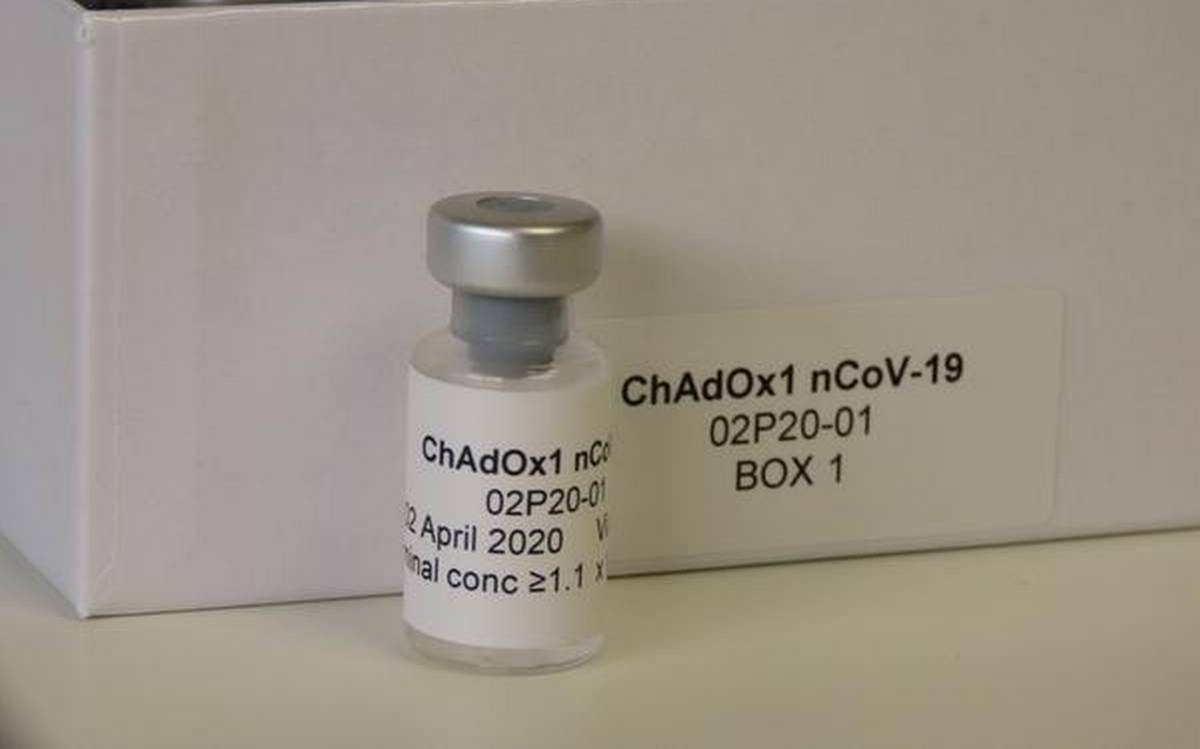RIO DE JANEIRO, BRAZIL – The Federal University of São Paulo (UNIFESP) and the Lemann Foundation confirmed on Monday, June 22nd, that trials of the ChAdOx1 nCoV-19 vaccine, globally led by the University of Oxford in the United Kingdom, began in São Paulo.

The vaccine is among the 141 candidates registered with the World Health Organization (W.H.O.) and is one of 13 that are currently undergoing clinical trials in humans worldwide.
Vaccine trials in São Paulo began on Friday, June 19th, and continued on Monday, June 22nd, according to UNIFESP’s Special Immunobiological Reference Center (CRIE), which coordinates the vaccine’s application in São Paulo.
According to the Lemann Foundation, the first stage of research, started on Friday and Monday, is for screening serological tests on volunteers, performed by the Fleury laboratory. The vaccine application as such should start between Tuesday and Wednesday, June 23rd and 24th.
Oxford University reports that at least 5,000 health workers will take part in the trials in Rio de Janeiro, São Paulo, and Brazil’s Northeast region.
Of the total number of health care volunteers, 2,000 will be vaccinated in São Paulo, 1,500 in Rio de Janeiro, and 1,500 in the Northeast region, possibly in the city of Salvador, Bahia.
UNIFESP states that Hospital São Paulo in the capital city is in charge of analyzing the profile of health workers eligible to undergo the vaccine trial.
In a note, the Lemann Foundation, one of the project’s sponsors in Brazil, celebrated the start of trials in the country and said there is still a long way to go before positive results are known.
“There is still a long way to go before positive results are known. We don’t know what will come next yet. Meanwhile, the Lemann Foundation’s focus is on following the initiative. There are many people and organizations working together toward success and, along with them, we hope to make our contribution to overcome the pandemic, with focus and attention to Brazil and its people, our greatest commitment,” said the foundation’s note.
The Oxford vaccine trials in São Paulo are being coordinated by the Special Immunobiological Reference Center (CRIE) of the Federal University of São Paulo (UNIFESP), with the collaboration of infectologists Dr. Lily Yin Weckx and Dr. Sue Ann Costa Clemens, responsible for the joint effort that made Brazil the first country in Latin America to be part of the vaccine trial stage, in addition to the United Kingdom.
Oxford Vaccine – Stage 3
The Oxford University vaccine in partnership with AstraZeneca, which uses the principles of similar vaccine trials against Ebola and MERS (Middle East respiratory syndrome caused by another type of coronavirus) is one of the most developed in the world.
In all, 50,000 people will be tested worldwide — 30,000 in the United States and others in Africa and Asia. In Brazil, at least 5,000 volunteers between the ages of 18 and 55 will be vaccinated. The goal is to announce the results by September and, should all go well, deliver the vaccines as early as October.
In São Paulo, trials on 1,000 volunteers are being conducted by the Special Immunobiological Reference Center (CRIE) of the Federal University of São Paulo (UNIFESP), and the Lemann Foundation is financially supporting the full medical infrastructure and equipment.
In Rio de Janeiro, trials involve 1,000 volunteers and will be conducted by the D’Or São Luiz Network with its own R$5 million funding and under the coordination of the D’Or Institute for Research and Teaching (Idor).
People are recruited from the frontline of the Covid-19 fight, in a situation of greater exposure to infection. They need to be seronegative, that is, they have not contracted the disease before.
The vaccine uses a technology known as recombinant viral vector. It is produced from a weakened version of an adenovirus that causes colds in chimpanzees — and does not cause the disease in humans. The genetic material used to produce Sars-Cov-2’s spike protein (which it uses to invade cells) was added to this immunizer, inducing antibodies.
It is considered a modern and “safe” vaccine because it does not use the virus but rather a genetic sequence.
Obstacles
Despite taking part in the human trials stage, Brazil runs the risk of being left out of the first round of Oxford vaccine purchases unless the Brazilian government enters into an agreement with the university for priority to purchase the product, should it prove successful in controlling Covid-19.
The agreement is under consideration by the Ministry of Health and the Ministry of Economy, but Oxford University and Astrazeneca, the pharmaceutical company responsible for vaccine research in the United Kingdom, have not received any indication that it will be appreciated in the short term.
According to sources involved in trials on Brazilian soil, the delay in signing the agreement could push Brazil to the bottom of the priority list for receiving the first mass-produced batches of the vaccine.
The Ministry of Health was contacted to clarify the obstacles that have hindered the signing of the agreement but failed to comment as yet.
However, the interim Minister of Health, Eduardo Pazuello, said on Tuesday, June 23rd during a public hearing in the Chamber of Deputies in Brasília, that the federal government should sign the agreement to produce the vaccine against Covid-19 developed by Oxford University and the biopharmaceutical AstraZeneca in Brazil later this week.
“We are now closing Brazil’s commitment to participate with the Chief of Staff of the Presidency. Our links with the university and AstraZeneca are now well underway, involving Fiocruz and Biomanguinhos,” said the Minister in the National Congress’ joint committee that monitors the coronavirus pandemic in the country.
Source: G1

